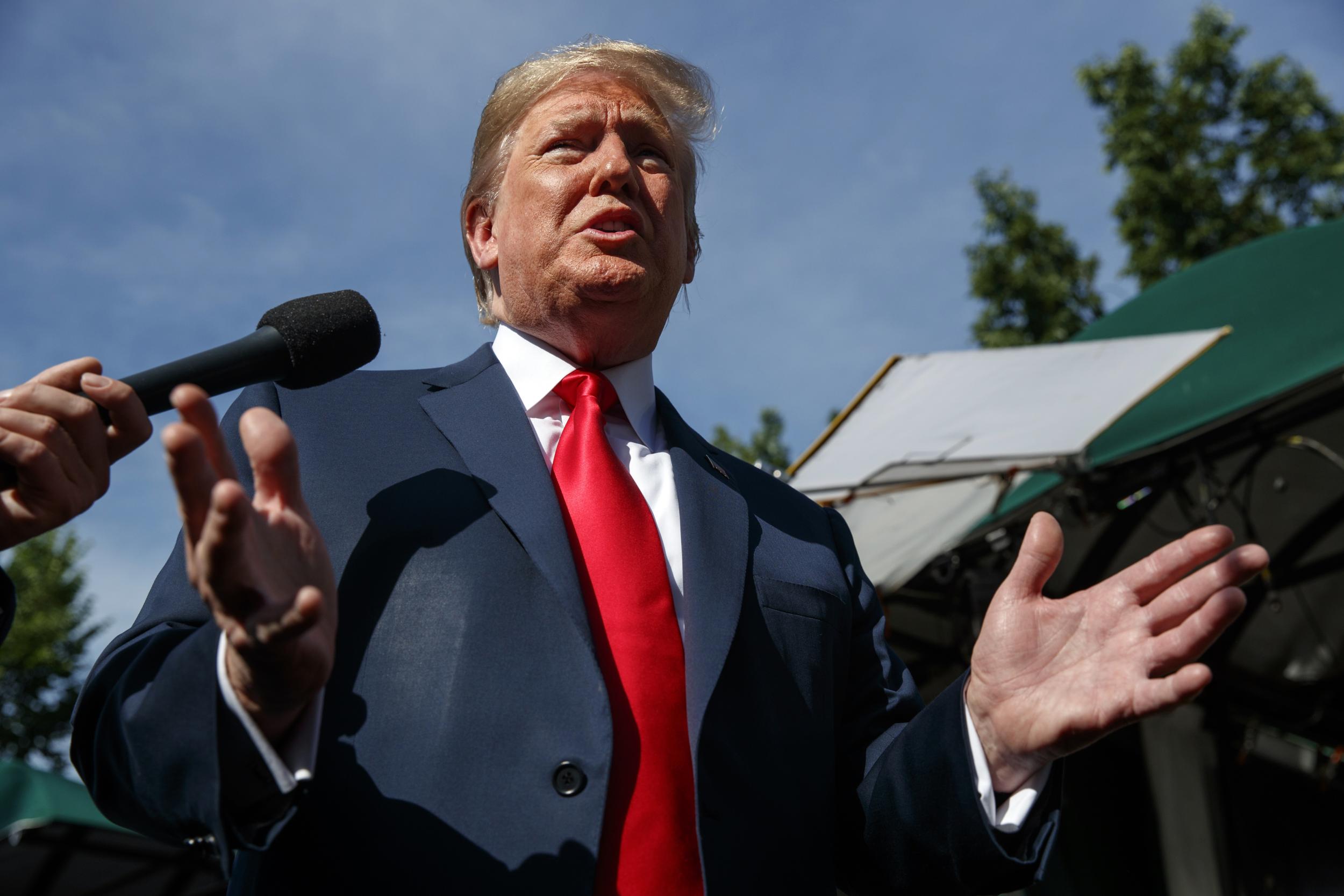Depending on how you look at it, Trump may actually be onto something with his aggressive stance on trade
At the moment the US is lashing out in a random way, and it would make much more sense if it were focused on its real problem – China


How worried should we all be about a global trade war? There are two stories, and both of them have some validity.
The first runs like this.
The great burst of prosperity that has swept across the world since the Second World War was driven by greater freedom of trade. Now Donald Trump has put all this progress at risk, and in absurd ways. He is using national security as a justification to attack Canadian steel imports; this is a country that has had peaceful relations with the US for 200 years.
And he cosies up to the leader of North Korea, a country that a few months ago was threatening to attack the US with nuclear weapons. He also picks a fight with the European Union which, whatever you think about it, is no threat to the US. And he counters new tariffs on Chinese imports by saying that he has a great relationship with President Xi, as though this would solve everything.
The second story is more like this.
It is true that the US has been the greatest beneficiary from ever freer trade, and that it has grown faster than the rest of the developed world and much faster than continental Europe and Japan. But other countries have exploited the US in various ways.
Europe has relied on it for its defence, yet has substantial barriers on imports of US products. Germany runs a current account surplus equivalent to 8 per cent of its GDP, and there are all sorts of other informal barriers that keep US products out.
For example it is much easier to buy French wines in the US than American wines in France. Canada has import restrictions that the US sees as unfair. And China has used stolen American know-how and its access to the US market to build itself into the world’s second largest economy and become a rival to America. China has behaved in an ultra-nationalistic way; why shouldn’t the US do a bit of the same?
Both stories have merit in the sense that there is an element of truth in each. However, if you emphasise the first, this is a mad and dangerous way to correct the acknowledged weaknesses of our free-ish trading system. If, on the other hand, you have more sympathy with the second, then softer approaches to reform world trade and make countries play fair have failed, so why not take a tougher line and see what happens?
At the moment the US is lashing out in a random way, and it would make more sense if it were more focused. Take the tariffs on steel. The US has imposed a 25 per cent tariff since the end of May. It imports about 35 million tonnes a year, with Canada its largest supplier, and Canadian steel workers will be hard hit. But Canada is not really the problem. The US has a physical trade deficit of more than $550bn, though it also has a surplus on invisible trade, trade in services. Out of that $550bn, $375bn is with China. That is where the real problem lies.
Look at this another way. China produces more than 800 million tonnes of steel a year. The UK, which is caught in crossfire here, produces less than 8 million tonnes. We are hurt to some extent, and the Tata complex in Wales has already been under threat. But, like Canada, we are not the problem.
So what will happen? My guess is this. I have just been reading a thoughtful paper by Victor Hill of Masterinvestor, who argues that China has been conducting a trade war on the G7 for the past 30 years and there is method in Trump’s madness.
If this is right, then the trade war within the present developed world will settle down. There will be some damage but it will be contained. The real issue is what happens to trade with China. My guess there is that an accord will be struck, but that Chinese trade will shift more towards the emerging world than the West.
Within the West we will feel the impact of China through its investments, which in general will be welcome. Look how they have rescued Volvo and are building the next generation of London taxis. Globalisation will take a new direction, rather than being destroyed or compromised.
So the synthesis of those two stories will be that cross-border investment becomes more important and cross-border trade less so. And any collateral damage – and I am afraid there will be some – will have to be repaired in a few years’ time.
Join our commenting forum
Join thought-provoking conversations, follow other Independent readers and see their replies
Comments